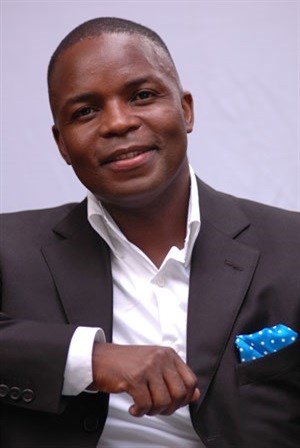
Top stories






More news

ESG & Sustainability
#AGES2026: How to back Africa's next-gen green and blue entrepreneurs


















Logistics & Transport
#Budget2026: Road freight logistics and what it means for consumers


Yoliswa Cele: I am a South African-born, New York-bred social entrepreneur, the daughter of a Durban-raised housekeeper who migrated to the USA and worked her way up to a 15-year nursing career. My work and passions are centred on youth development, advocacy and social/economic impact in both the diaspora and Africa. As part of the South African diaspora, I am dedicated to contributing to the nation’s development from any corner of the world where I may find myself.
Vuma Shongwe: I am a South African diasporan. Being in the position I am in makes me feel as though I have an opportunity to contribute from a distinct perspective on a number of issues confronting Africa. I would like to make use of the disassociation between myself and my home (which was beyond my control) to build and aid in constructive engagement - in effect, taking the distance and building closeness.
Ndosi Strategies is a startup firm providing development services, international platforms and economic investment for primarily African-led startups, public/private organisations, SMEs and entrepreneurs. It is an expression of the need to participate in pushing the boundaries of success and opportunity for Africans in an effective way, making the tools accessible and being invested in the outcome. The scale at which we can catalyse progress by propelling and accelerating indigenous innovation and developing a business arena is immense. All of the promise and possibilities present in Africa can be realised, so our position is calculated with that reality in mind. You have to be active and commited for anything to happen and, given the position of our firm and our talents, we can and should affect change. In this capacity, we will enable other agents of change and take more than a spectator's role in the fate of Africa as a globalised continent.
Meeting of the Minds aims to publicise the African entrepreneurial movement. There needs to be an open platform for the unrecognised forces that are responsible for shaping and, in effect, creating our economy, to deliver their stories without interpretation. We will host South African entrepreneurs and allow them the space to tell the story of business and industry in the independent nation South Africa is today. We'll hear what they view as significant, what is valuable to them, and allow them to broaden their reach and prospects. We will do so in an environment that will make decision-makers and market players register South Africa as a nation equally significant as Nigeria and Kenya, and Africa as investment-worthy as any western or more heavily developed continent.

We noticed that the perceptions around Africa; such as helplessness, inefficiency, stagnation, and being unproductive / uncompetitive, extended out of the social and political arenas and into economics and commerce. However, based on our experience and research, this was extremely inaccurate. In fact, the opposite was true, the dominant communication didn't convey the on-ground reality, and we couldn't sit quietly and swallow the "pitiful Africa" narrative. There’s also the detrimental effects it has had on discussions about the future and our present, as well as the wealth of contradictory narratives we constantly came across. We opted to take a stand and be responsible for turning the discourse towards objective first-hand insight into the situation. The actual players and businesses themselves should be the narrators.
Although they are now seasoned elders, the leadership and the liberators of our nation were the youth. South Africa is a recent example of the value of youth in the growth of humanity. Recognising the contribution of the youth is imperative and incorporating and recognising them, their skills, ability and their relevance can't be overlooked. Now in this era, the youth are the active element in liberating and advancing Africa in general and South Africa in particular. These young, ambitious, fearless, imaginative, skilled, innovative, and dedicated Africans are the only way that the regression of centuries of inhumanity and deprivation will rapidly be reversed. This event is a result of the uprising that Youth Month commemorates.
In our observation and interaction, we see the entrepreneur culture as significant, thriving, and highly undervalued. The entrepreneurial space in South Africa is the exact sector that supported and produced the liberation of the nation. The spirit of self-sufficiency and triumph over adversity is the core of entrepreneurship. In South Africa, it was a cultural norm for people to own local businesses and even grow them to the municipal metropolitan or regional level. That may be overshadowed now by an employment focus, but the character that created entrepreneurs even in a time of immense limitations, is still a part of the social and cultural make-up of South Africa.
Right now, regardless of the difficulty and the hurdles to business success, we see a proliferation of self-starters in the business field. The youth, not unlike their predecessors, are taking a stand and carving out their own paths to success. They need support and nurturing, but there is no shortage of viable and saleable ideas. We have to collectively begin to patronise and promote our domestic businesses, realising that that value will create greater value for all of us.
Again, due to the challenges unique to developing and nascent nations, particularly those of Africa, we notice that the actual quality and competitiveness of African entrepreneurs is undersold. In South Africa, we see ideas on par with and exceeding those of other African nations, and even globally, regardless of region. The belief and investment in new novel concepts, solutions, and products is way too low. But that's positive because given that environment, the level of innovation and drive is even more remarkable and significant. If properly supported, incentivised and promoted, we could see less quick flips and far more job creation, industrial development and national production in a short period of time.
We need to communicate this to the chronically unsupported majority. The disadvantaged and the under-represented in any society are often untapped pools of new potential for economies, as well as for many other areas of consequence in growing and sustaining nations. As such, bringing them into the equation is non-negotiable.

Tech is obviously a good shot, and we can stand to make vast improvement there, however, agriculture, service, and consumer goods, are all going to be growth areas. All are poised to experience growth in activity, unavoidable need for innovation, and heightened demand or a combination of those stimuli. But notably, the most promising area is our informal economy. The township economy is immensely resilient and will be conventionalised in some way in our lifetime. The key is that it is developed by agents who are reflective of its participants and is developed on its own unique terms. It really does have the potential to revolutionise economics in South Africa. Being an area that could be shaped by the unique ecosystem that is the indigenous South African social environment, it could result in an epic windfall for those involved if done correctly.
In addition, an arena we are poised to have a great impact in is energy. Based on the current difficulties in this area and our unique geographic and geological characteristics, South Africa is potentially a game changer in the renewable and sustainable energy arena. The global demand for this is unquestionable, however development can be hinged on high capital investment and that leaves room for uncertainty around how our participation in the field will actually pan out. Individuals such as Siya Xhuza and the Musk family of enterprises can be major factors in a successful exploitation of the new demand for renewable energy.
A pluralistic mentality can go a long way. We would benefit from a reinvigorated sense of community and collectivism, particularly among and relative to the youth - a true application of "ubuntu" in advancing the nation. The young have to see themselves as interconnected and their actions as being similarly interrelated. Government involvement and investment is overstated. Its significance has been established, however, the limits of what government can achieve is something that has not been looked into. At this juncture, youth, with the inclination to greatness, can most readily benefit from doing their best to exploit any opportunities, and their own talent and energy. Apart from that, emphasising the spirit of reinvestment and increasing participation, access, and awareness, within their own demographic, would create more growth and progress than solely focusing on the effort of the legislative and public sectors, which have realities and dynamics to contend with that often starkly counter their more noble mandates. The calculation of investment possible, potential returns, and cost of not, is still seemingly more complicated than accepting inability to be effective in a broad way. Understanding the practicality of being able to do, and enabling others to as well, is simple but powerful and the essence of youth advancement in an environment where youth have been models of self-reliance.
It means that there is much more to be done. There are big shoes to fill and big shadows to cast. We have to be as transformative or more so than our forebears were. It therefore means that the nation is committed to being a global competitor of significance. Imagination and impatience, the spirit of youth is undisputedly the life-blood of the republic. It has to be fostered and cultivated; it must be active for the nation to persist and prosper.
Hunger. Disappointment. Adversity. Disregard. Having the benefit of the particular upbringing and the fortune of a deep cultural connection to perseverance and resistance, made us consumate problem-solvers. But more importantly, it made every challenge a new opportunity to learn or develop. We believe in our strength, but more significantly, we believe in the inevitability of success.
Do. Be focused, be passionate, be thorough, be unorthodox, be intentional in your success, and be active. You are only as weak as you believe and every challenge is a new solution.
Yoliswa Cele is CEO, and Vuma Shongwe is COO of Ndosi Strategies. Both are co-founders of the organisation. The Meeting of The Minds event is sponsored by Brand SA. For more info, go to https://tmotmsany.eventbrite.com.
